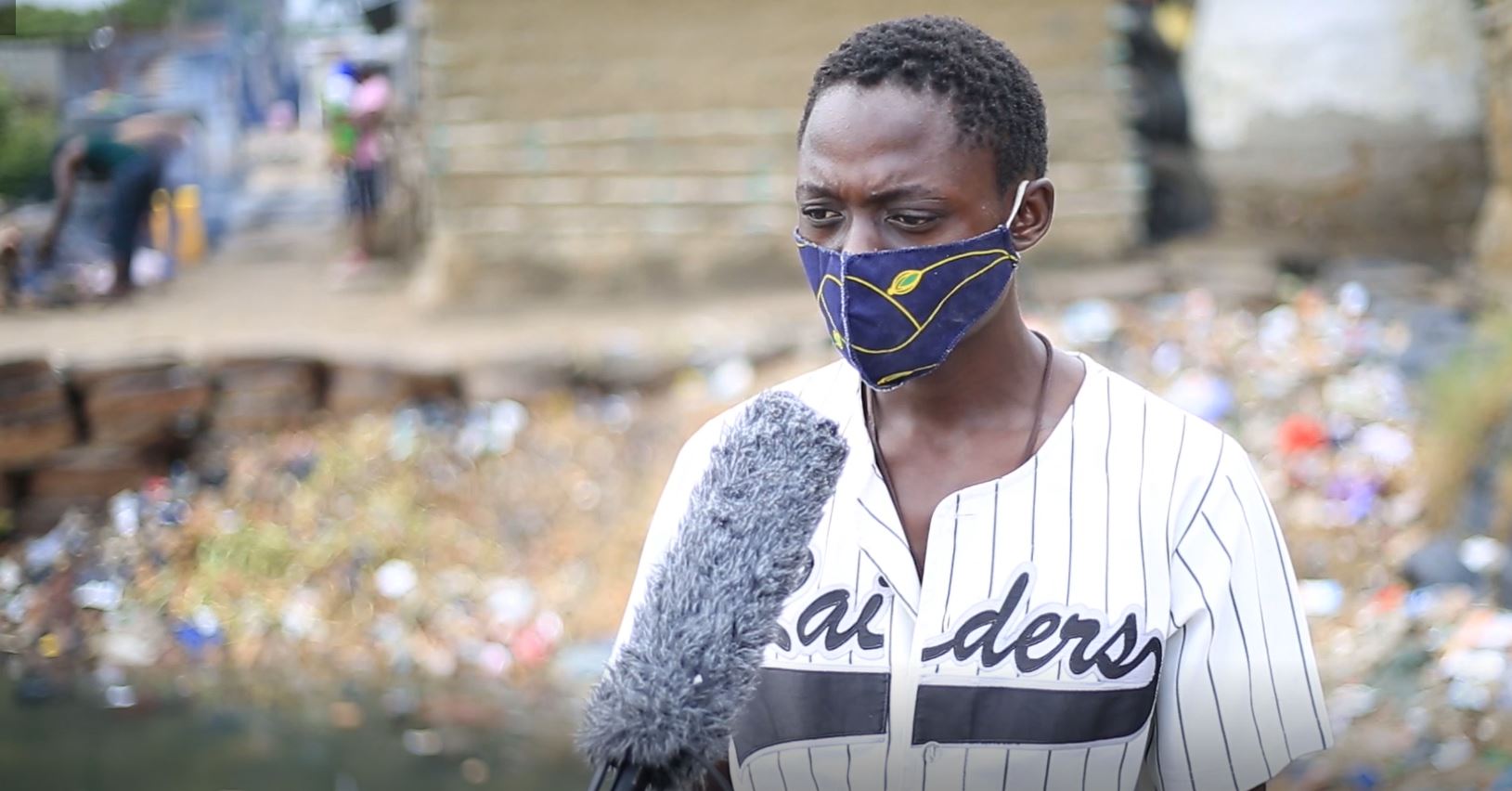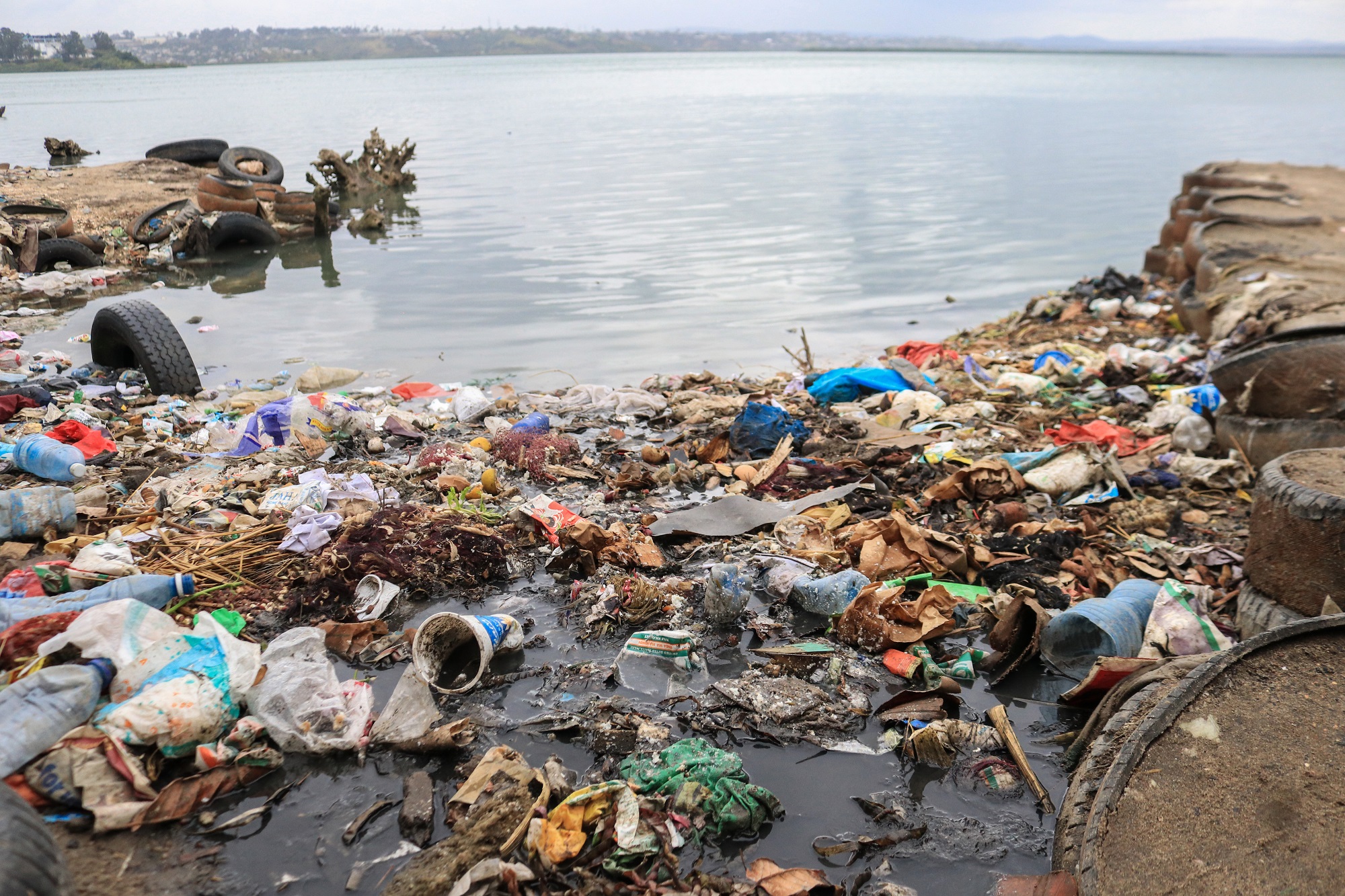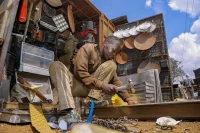Abdul Said Konde is a youth resident in Tudor informal settlement in Mombasa County.
Like thousands of other young people across the country, he is not formally employed and the COVID-19 pandemic has made it even harder to access manual jobs. To him, there lies a gold mine in the waste around his community, one he is willing to explore with the right support.
“If we (Tudor youths) are facilitated with skills to make waste collection buckets from recycled plastic; and then have a specific day of the week to collect the waste and charge at least twenty shillings per household, it’ll help us get some income during this difficult period of COVID-19,” he says.

Kenya is increasingly grappling with the unemployment challenge especially, among women and youth. Women-led households across the country have had to bear the largest brunt of the Coronavirus crisis as livelihood gaps increase, with most micro and small businesses closing down for months. The economy is slowly re-opening, yet more job losses continue to be reported.
Concurrently, Kenya’s population continues to grow, coupled with extreme urbanization, about 63% of the country’s population is expected to be urban by the year 2030, according to UN statistics.
As a result, waste management remains a headache especially due to the culture of disposal across the country.
Kenya generates an estimated 22,000 tons of waste per day, and Nairobi County alone accounts for about 11% by generating 2,475 tons each day.
Wasteful production processes, low durability of goods, unsustainable consumption, and production patterns have led to a waste management nightmare.
Furthermore, COVID-19 has accelerated the consumption of single-use and personal care products; exacerbated by low investment in core infrastructure to treat mixed contaminated medical waste.
While national and county interventions are largely focused on protecting lives and rebuilding the economy, the pandemic is a reminder to rethink waste as a resource or material that should become an input of production. By reintroducing it into the cycle to regenerate other products, we minimize environmental contamination and create opportunities for businesses and jobs that otherwise didn’t exist.
“As much as we have an unemployment problem among the youth, the fact that there is an increasing rate of waste generation is an opportunity for young people to invest in,” says Dr. Godfrey Nato, CEC Ministry of Environment in Mombasa County.
Rethinking the Potential of Waste as an Opportunity for Women and Youth
There exist policies in Kenya such as the Sustainable Waste Management Policy, 2019 Draft, which states that “It is important that the policy and law build on public involvement in the sector and incentivize job creation and to improve livelihoods from the sector, particularly for women and youth who play a critical role in socio-economic development.
The challenge of waste management affects every person and all institutions in society. The measures set out in this policy cannot be undertaken without a collective approach to waste management challenges, through the involvement of a broad range of stakeholders”.
“Waste management is not only the responsibility of the government but also that of the private sector. The circular economy requires that we move from the whole cradle to grave model and start creating a robust value chain of both economic and social value for different actors involved in collecting, refurbishing, repairing and reusing waste,” says Karin Boomsma, Sustainable Inclusive Business Director.
Ms. Boomsma, who has been on the forefront championing for Kenya’s rapid shift towards the circular economy, also notes that “formalizing the informal waste sector will minimize the exploitation of informal waste collectors, thus creating sustainable jobs and revenue for them”.
The Kenya Private Sector Alliance (KEPSA) through its foundation, is creating a lot of awareness to sensitize Kenyans on the importance of waste segregation at source, with such an initiative currently running at the Nyayo Estate in Nairobi.
Furthermore, Sustainable Inclusive Business is also implementing a project in Mombasa’s Tudor informal settlement, aiming at creating awareness on proper waste management as well as increasing youth and women’s capacity to earn a living through sustainable waste business cases.
The project, dubbed “Creating Opportunities and Alleviating Poverty Through Sustainable Trade (COAST)” will enhance their capacity to access financing by linking them to financial institutions; based on their business environmental impact. The expected outcome is to alleviate poverty levels through an alternative source of income for the residents.
“Generally, we need to effect a mindset and lifestyle change into our communities, in order to contextualize the circularity element within a Kenyan bigger context. The goal is to have a transformational shift to more sustainable waste management models,” says Ms. Boomsma.
The unemployment problem in the country is aggravated by the fact that a majority of the unemployed youth (approximately 90%) lack employability skills. It is therefore critical to increase their capacity to identify opportunities through mentorship.
“We have different outreach programs that boost young people’s skills and illustrate how they can convert waste into valuable products that will improve their livelihood by re-introducing them into the market. We encourage the participants to identify value in waste collection, sorting, and recycling; while we strive to absorb as many youth and women into waste businesses and/or job opportunities that aim to alleviate poverty in the communities we serve,” says Richard Kainika the Secretary-General of the Kenya Association of Waste Recyclers (KAWR) .
Need for Robust Systems to Separate Waste at Source in Kenya
In Kenya, open dumping and burning are the main disposal and waste treatment systems. The country urgently requires more robust systems for segregating waste at source, collection, and management of waste.
Citizen education and involvement are also needed, on how to safely dispose of waste especially that which has harmful chemical elements to the public and environment.
“Putting in place proper incentives for the unemployed youth, in addition to suitable regulatory frameworks and proper infrastructure to address waste separation at source; will enable recycling and build long-term resilience, while generating new economic and business opportunities and providing far-reaching social and environmental benefits to Kenyan youth and women,” adds Mr. Kainika.
In addition, Ms. Boomsma underscores that “From the production stage, we must ensure that products are of the highest quality to enable reusing, repurposing or recycling and that they have proper labeling to show collectors which materials can be recovered during the sorting phase.”
One of the objectives of The Sustainable Waste Management Bill, 2019 is to “create an enabling environment for green economy jobs in the waste management, recycling and recovery industry especially for youth, women, and persons with disability.”
With meaningful partnerships and behavioural change in separating waste at source as well as adopting the zero-waste principle where the so-called waste is seen as input for production; Abdul Konde and the rest of the youths still struggling with unemployment in Kenya will be a step closer towards financial independence from waste management.
Consequently, we will have made the environment cleaner and more habitable, vital prerequisites of a circular economy.
See Also>>>>> Kenyan Businesses Should Take Responsibility for Plastic Waste













Leave a comment